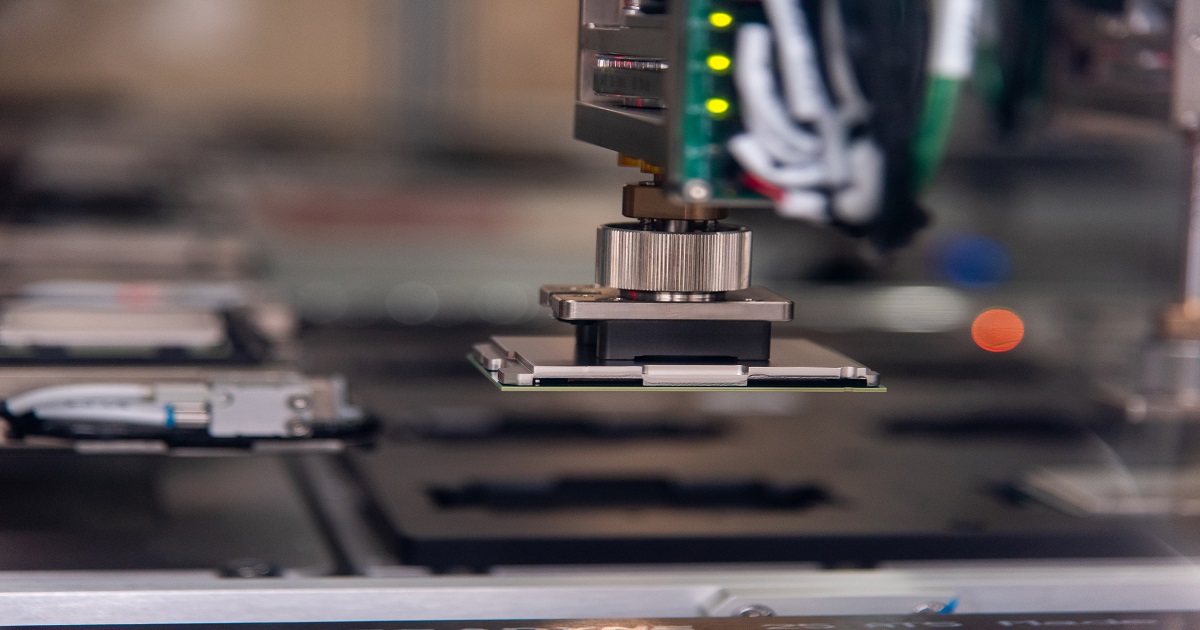
Intel, the iconic American chipmaker, has fueled the digital revolution for more than 50 years. Founded in 1968, it burst onto the scene with the 4004 microprocessor, which forever changed the face of computing.
Intel (News - Alert)'s reign atop the chipmaking world was built on its relentless pursuit of Moore's Law, which predicted the doubling of transistor density on integrated circuits every two years. This growth in processing power powered the rise of personal computers, laptops and later, smartphones and cloud computing. The iconic "Intel Inside" branding became synonymous with performance and reliability, etched onto motherboards and plastered on laptops.
However, the past decade saw Intel face competition from rivals like AMD (News - Alert) and NVIDIA. Challenges arose from the shift to mobile computing, where ARM-based processors gained traction, and later, from data center needs for specialized chips beyond traditional CPUs. But probably the biggest challenge in recent years was the chip shortage fight due to restrictions during the pandemic. Intel weathered these storms by diversifying its offerings, venturing into memory and graphics chips, expanding its data center presence and investing in new technologies like AI.
Today, Intel remains a powerhouse within the CPU market and is showing its innovation with the launch of its portfolio of AI products to enable customers’ AI solutions everywhere — across the data center, cloud, network, edge and PC. Within the portfolio are the Intel Core Ultra mobile processor family, The Fifth Gen Intel Xeon processor family and the Intel Gaudi3 AI Accelerator.
The Intel Core Ultra processors bring improvements across performance, graphics, power, battery life and AI capabilities. Core Ultra boasts Intel's first on-chip AI accelerator, the NPU, delivering 2.5-times better power efficiency than its predecessor.
Just as important is Intel's collaboration with over 100 software vendors. Hundreds of AI-powered applications are poised to flood the market. Consumers and businesses alike will witness an unparalleled ecosystem of AI-enhanced apps optimized for Core Ultra, outperforming competing platforms. Adobe (News - Alert) Premiere Pro users, for instance, can expect a 40% performance boost.
Over the next year, Intel Core Ultra will bring AI to at least 230 laptop and PC designs from global makers. By 2028, AI PCs are predicted to dominate 80% of the market, bringing news tools to the way people work, learn and create.
With that, Intel is also bringing more powerful AI to the data center, cloud, network and edge with the Fifth Gen Intel Xeon processors. Compared to prior generations, they offer a 21% average performance gain for general workloads and 36% higher average performance per watt across diverse tasks. Upgrading from even older models, users can see TCO reductions of up to 77% over a typical five-year refresh cycle.
Xeon stands alone as the mainstream data center CPU with built-in AI acceleration. This fifth-generation iteration delivers up to 42% faster inference and fine-tuning for expansive models (20 billion parameters). Notably, it's consistently improving MLPerf training and inference benchmark results.
Xeon's AI accelerators, optimized software and enhanced telemetry streamline deployments of demanding network and edge workloads for diverse sectors like communication service providers, content delivery networks, and industries like retail, healthcare and manufacturing.
Here are some real-world results. IBM (News - Alert) reported a 2.7-times query throughput boost on its watsonx.data platform using the fifth generation versus prior versions. Indie game studio Gallium Studios achieved a 6.5-times inference performance improvement over cloud-based GPUs for its AI-powered game, Proxi11, by opting for Numenta's AI platform running on Xeon processors.
These performance advances unlock new possibilities for advanced AI beyond data centers and the cloud, extending its reach across global networks and edge applications.
Intel also revealed a bit more information on the anticipated Intel Gaudi3, coming next year. Intel has seen a rapid expansion of its Gaudi pipeline due to growing and proven performance advantages combined with highly competitive TCO and pricing. With increasing demand for generative AI solutions, Intel expects to capture a larger portion of the accelerator market in 2024 with its suite of AI accelerators led by Gaudi.
“Intel is developing the technologies and solutions that empower customers to seamlessly integrate and effectively run AI in all their applications — in the cloud and, increasingly, locally at the PC and edge, where data is generated and used,” said Intel CEO Pat Gelsinger. “Our AI portfolio gets even stronger with today’s launch of Intel Core Ultra ushering in the age of the AI PC and AI-accelerated Fifth Gen Xeon for the enterprise.”
Intel Core Ultra and Fifth Gen Xeon are set up to be in places people may not expect. As a few examples, imagine a restaurant that guides your menu choices based on your budget and dietary needs, imagine a manufacturing floor that catches quality and safety issues at the source or imagine an ultrasound that sees what human eyes might miss.
Intel, with its partners and broad ecosystem, continues to unlock new growth opportunities fueled by AI with the main goal of bringing AI everywhere.
Edited by Alex Passett




